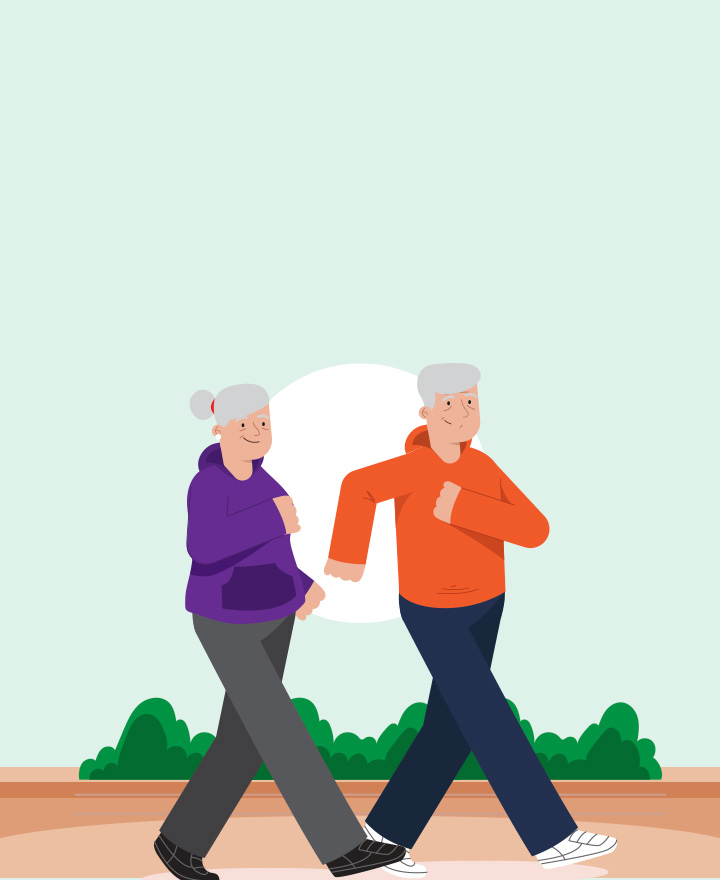

Effective Exercises to Manage Peripheral Artery Disease (PAD)
Peripheral Artery Disease (PAD) is a circulatory condition where narrowed arteries decrease blood flow to your limbs, causing pain or discomfort, especially during physical activities. The right exercises can significantly improve mobility, provide symptomatic relief, and promote overall health. This microblog highlights simple and effective exercises for peripheral artery disease (PAD) management while promoting daily activity. Read on to know more.
Simple Exercises for PAD Management
1. Walking
One of the most effective exercises for PAD is walking. It’s simple yet powerful. Although it initially causes discomfort, walking helps improve blood flow. Start slow, walking for short periods with breaks, and gradually increase the duration of your walks. This method strengthens your muscles and trains your body to use oxygen more efficiently, which can reduce symptoms over time.
2. Leg Lifts
Leg lifts are effective for strengthening your lower body and improving circulation. Lie on your back, raise one leg, hold for a few seconds, and then lower it. Repeat with the other leg. This gentle exercise can be done at home and is ideal for those just starting with exercises for peripheral artery disease.
3. Calf Raises
Calf raises are easy to perform and work directly on your calf muscles, which are often affected by PAD. Stand upright, lift your heels off the ground, and slowly lower them back down. You can use a wall or a chair for support if needed. Calf raises can improve blood flow and muscle strength, making them excellent exercises for PAD.
4. Stationary Cycling
If walking is too painful, stationary cycling can be a great alternative. It’s a low-impact workout that allows you to exercise your legs without the added strain of weight-bearing activities. Start slowly and gradually increase the time as you become more comfortable with this exercise.
5. Stretching
Stretching is often overlooked, but it’s a crucial part of any exercise routine, especially for PAD. Stretching exercises, like hamstring stretches and ankle rolls, help improve flexibility and blood circulation, which are essential in managing PAD symptoms. Make sure to stretch before and after any physical activity.
FAQs
1. How long should I exercise if I have PAD?
Start with 10-15 minutes of exercise daily, gradually increasing the duration to 30-45 minutes. Remember to take breaks if you feel discomfort.
2. Is walking safe for someone with PAD?
Yes, walking is highly recommended. It's normal to experience some discomfort, but as you continue, your endurance will improve, and the pain will lessen.
3. Can I do strength training if I have PAD?
Yes, but it's important to focus on low-impact exercises that don't strain your body too much. Exercises like leg lifts and calf raises are good choices.
Conclusion
Incorporating exercises for peripheral artery disease into your daily routine can immensely improve your quality of life. Remember to begin slowly and gradually increase the intensity of your workouts. With consistency, you can effectively reduce the impact of PAD on your daily life, staying active and healthy.
One of the important components of our overall wellness is also being financially secured. Healthcare emergencies can happen any time, but a good health insurance policy can protect you from such uncertain situations. To know more about Wellness and other health related tips, visit the wellness corner.
Source: webmd.com, ahajournals.org
Disclaimer: This blog provides general information and discussions about health and related subjects. The information and other content provided in this blog, website or any linked materials are not intended and should not be considered or used as a substitute for medical advice, diagnosis, or treatment. Kindly contact your doctor before starting a new medicine or health regime.
Related Articles
Can yoga reduce blood pressure?
What is Diabetes – All You Need to Know About It
What Is Yoga : Everything You Need to Know About it
High-Intensity Interval Training
Treat Back Pain with Physical Therapy
Published on December 12, 2024


 Health Insurance
Health Insurance  Travel Insurance
Travel Insurance  Car Insurance
Car Insurance  Cyber Insurance
Cyber Insurance  Critical Illness Insurance
Critical Illness Insurance
 Pet Insurance
Pet Insurance
 Bike/Two Wheeler Insurance
Bike/Two Wheeler Insurance  Home Insurance
Home Insurance  Third Party Vehicle Ins.
Third Party Vehicle Ins.  Tractor Insurance
Tractor Insurance  Goods Carrying Vehicle Ins.
Goods Carrying Vehicle Ins.  Passenger Carrying Vehicle Ins.
Passenger Carrying Vehicle Ins.  Compulsory Personal Accident Insurance
Compulsory Personal Accident Insurance  Travel Insurance
Travel Insurance  Rural
Rural